Advocates: Florida arrests see 'chill' for former felons at ballot box
It took 15 years behind hardened walls to make 54-year-old Sue Allen appreciate the world outside of her window.
She struggled on the streets of East Mims, selling drugs in the often-forgotten rural Brevard community, her life’s vision colored by the smoke of a crack pipe and going in and out of prison before conquering her addiction.
“I got into trouble. I thought everybody was my friend,” said Allen, who spent a decade and a half in prisons scattered across south Florida.
One thing she did do before going to prison: She voted. And now with her rights restored, she plans to vote again.
New voting law tested: Controversial new voting law tested Brevard elections officials and voters during primary
BPS property tax increase: Voters to decide on Brevard Public Schools property tax increase on November ballot
GOP incumbent, Democrat face off: Incumbent U.S. Rep. Bill Posey squares off against Democrat Joanne Terry
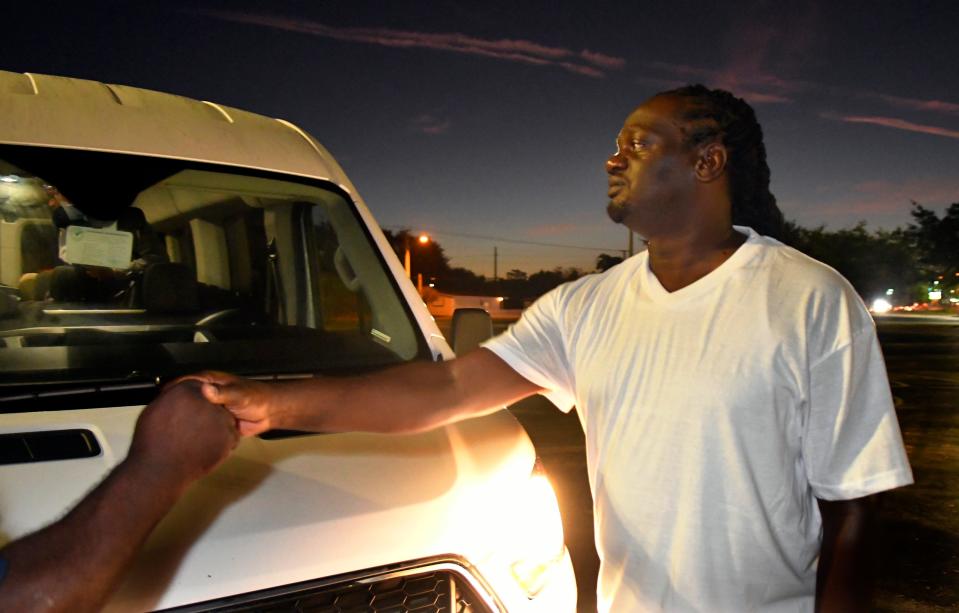
“Going to prison opened my eyes. I’m scared straight now, baby," she said.
"But I’m so glad I got my rights back because it is important. No matter what, I knew what I had to do.”
Allen is one of the thousands of former, convicted felons who have worked to reenter society by seeking to restore their voting rights, granting them access to the polls for the upcoming election. But observers say voices of former felons like her may be missing on Election Day after a series of statewide arrests in August.
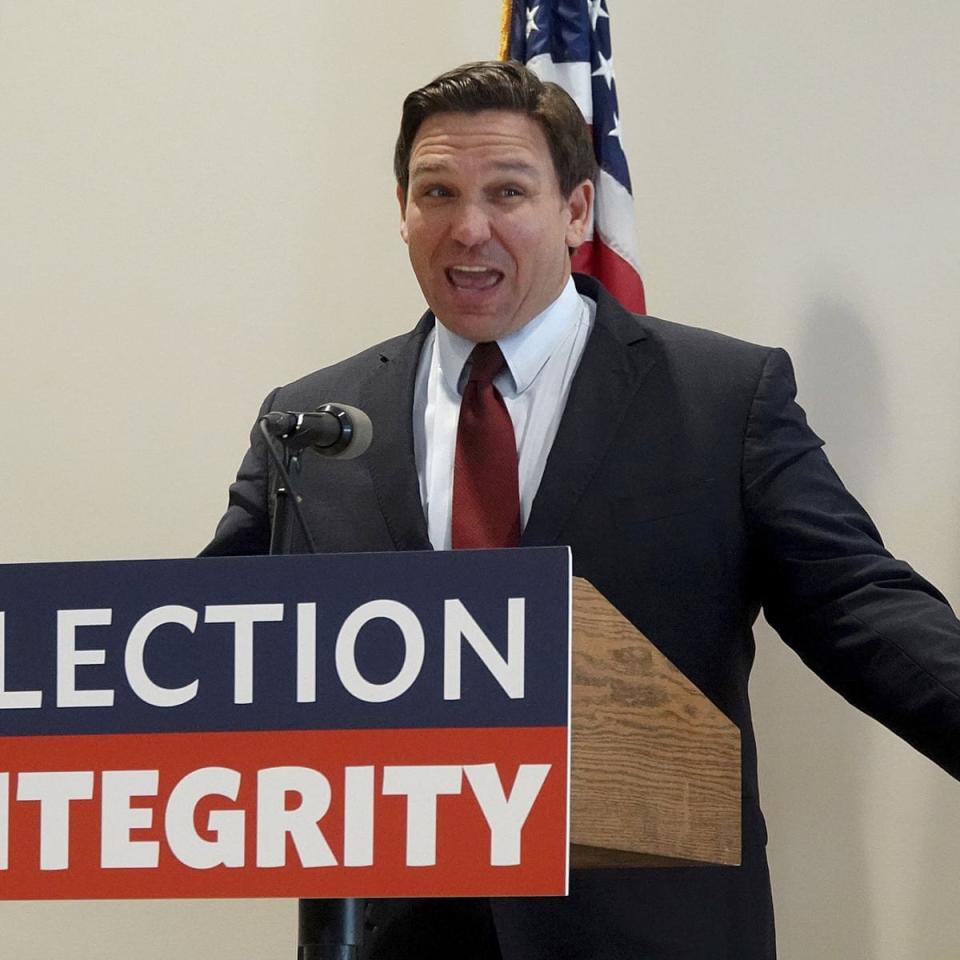
Florida voter verification 'broken'
The arrival of Amendment 4 in 2018 — a constitutional amendment passed by Florida voters that granted those 1.4 million felons with felony convictions the right to vote after a 150-year ban — spawned heavily publicized, unexpected roadblocks that have wearied those with dreams of casting ballots again.
The fear centers on a decision by Gov. Ron DeSantis, seeking re-election this year and a possible candidate for the upcoming 2024 presidential race, and the Republican-dominated state legislature to create a new $1.2 million Office of Election Crimes in the wake of unproven claims of voter fraud by former President Donald J. Trump.
DeSantis charged the office with focusing on finding ex-offenders convicted of murder or sexual offense — a group that had been explicitly excluded by Amendment 4 — who may have voted.
Already, there was some confusion as a state law passed in the aftermath of the amendment declared anyone with a non-murder or sexual offense felony conviction as eligible to vote if their sentence, including supervision, has been completed and if all fines have been paid.
At least 216,000 former felons — or returning citizens, as advocates refer to them — have registered to vote, according to the Florida Rights Restoration Coalition, one of several state and national groups working to restore voting rights for millions of Americans.
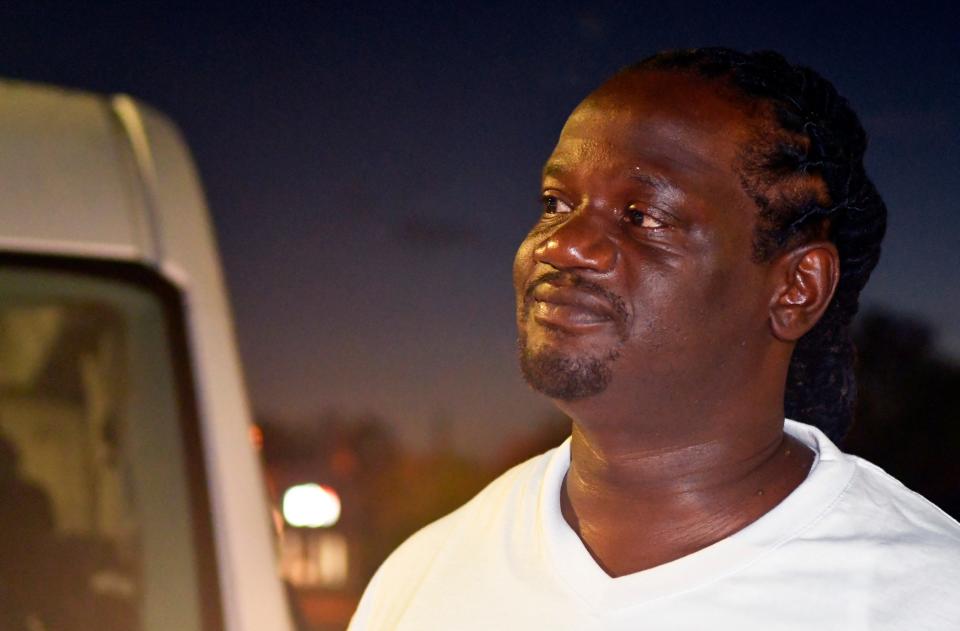
Some of those arrested by the new state office had filled out voter registration forms and received voter cards from local governments.
The confusion was compounded by the arrests in August — just over two months from the mid-term elections — of 20 men and women who previously served time in Florida. The charges: third-degree felony charges of voter fraud. But already, one of the fraud cases has been dismissed in Miami, after prosecutors found it difficult to argue an intent to commit a crime, records show.
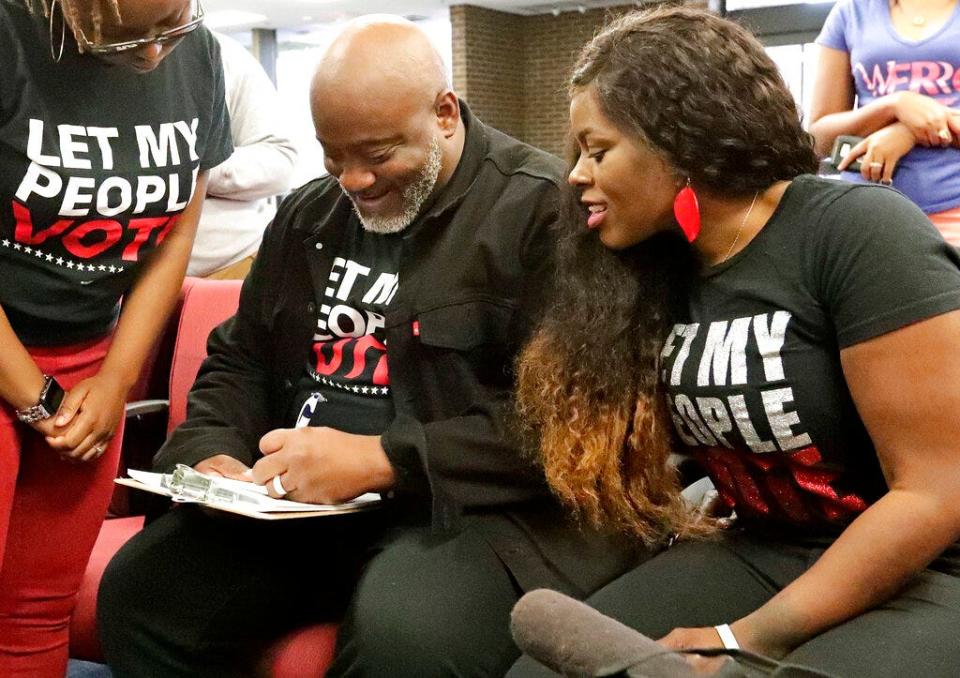
“We have a broken system as it relates to the voter verification process on the front end. That sounds super technical but it’s wildly important,” said Neil Volz, the deputy director of the Florida Rights Restoration Coalition, an advocacy group formed to help the formerly convicted.
Volz, a former convicted felon himself, said the failure to create a one-stop, statewide voter verification database also has made it difficult for former felons to know if they have paid all court costs or restitution in their cases. Others questioned the governor's timing.
"I voted for the first time in 2020," said Volz, whose rights were restored. "People were excited to be a part of the community again. But we understand that we are having this conversation in a political environment and I don't want to assume motives, but these arrests just had a big impact and it's made some people anxious and nervous."
Brevard County Clerk Rachel Sadoff says her office works to give those formerly convicted as much information as possible about potential fines or other unresolved cases.
But that information is limited, Sadoff said
“If an individual seeking to have their voting rights restored contacts our office to determine their outstanding financial obligations, we follow the Florida Court Clerks and Comptroller’s Best Practices,” Sadoff said in a statement issued to FLORIDA TODAY.
“We prepare the attached form to provide to the inquiring party, which outlines outstanding fines, costs, fees, and restitution due in Brevard County. It also includes a list of cases in other counties, but advises the person to contact the Department of Corrections for a comprehensive list of cases in Florida.”
Felons 'taking gamble' after DeSantis move?
Despite the reassurances, some are not so secure, even with documentation showing they can vote.
"From my understanding, I'm eligible. I had every intention on voting in the mid-terms and I've done my time," said Dana Loyd, a 50-year-old former felon turned criminal justice advocate. She paid her fines and served time on a 2015 conviction for filing a false report of child abuse. Loyd proclaimed her innocence, serving time at the county jail.
"But what's really got me worried is when the governor started having people arrested. I just don't want to take a gamble on that and go back to jail," the Titusville resident said.
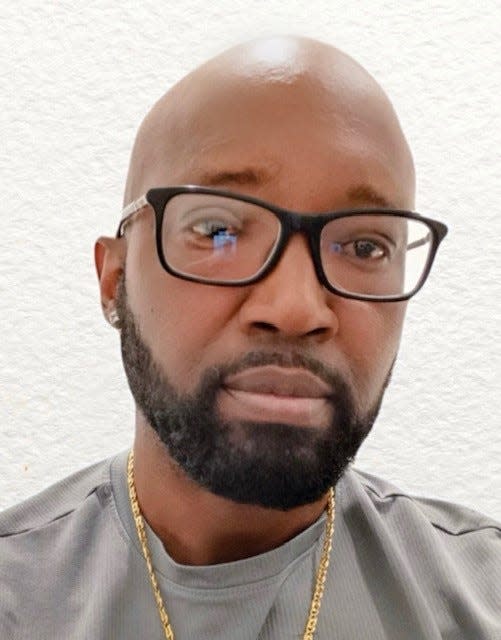
The restrictions and the scrutiny from state officials has, in a way, stripped representation from those who served their time and who want to have a say in government, Loyd said.
"Every vote is important. One of the great things about our country is that we are born in this country with rights. But to turn around and have the state government say no, and you have to do this and this before you can get your rights restored, it's just peculiar."
Ralph Price, a Cocoa resident who was arrested in 1991 as a habitual offender, remains on conditional release as part of his sentence. He wants his rights restored and is working to rebuild his life after spending 27 years in prison. He is looking forward to eventually casting a vote. He is not deterred by recent state actions or the arrests carried out in August. But he plans to be diligent about the process of restoration.
"I didn't vote before. I was just out in those streets. But absolutely, I understand that without the people being involved in the process, voting, you end up with people who don't have your best interest at heart. If you don't vote, you have no voice," Price said.
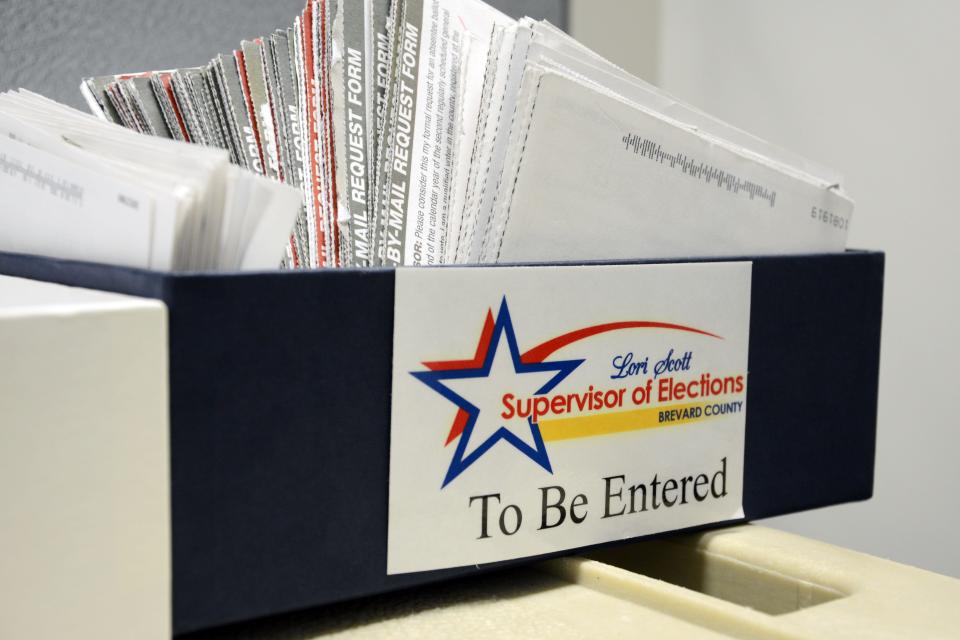
"And I understand that people will make it difficult for you once you serve your time, to get your rights restored. It's like they won't let you go."
2nd chances for Florida's former felons
Stacey Lincoln, a 51-year-old community activist in Titusville, had his rights restored about three years ago following the passage of Amendment 4. He was convicted of aggravated assault in 2014, spending time at the Brevard County Jail and carrying a felony on his record for years.
He said he plans to vote without any worry. Since then, he’s used his "second chance" to reach Titusville youth, helping to mentor them about making decisions. This past week, he helped take about 20 youths on a road trip to visit Black colleges from north Florida to Louisiana.
“I’m not particularly worried. To be honest, I’ve never put a whole lot of value in the process. But when I got older I began the tradition of the struggle our people had in getting to vote," Lincoln said.
He believes a lot of the rhetoric revolving around the hot-button issue of voter fraud is simply political strategy, he said.
“It’s theatrics. I plan on voting,” Lincoln said. “I have no intention of breaking the law."
Allen agrees: She's "not worried," she said. She supports former President Trump, who also touted the idea of criminal justice reform during his administration.
"Really, what we have to do is come together. I've changed, I used to be on drugs, I was out there. But we need leaders," she said.
But others are preparing for Election Day.
‘We’ve been crying out’: Attorneys, activists, Black community demand transparency from Brevard police
Grand Opening: Center in Cocoa aiding ex-offenders gets $500,000 from state; 'grand opening' set for Friday
Community advocates in Brevard County say they have heard of trepidation from some of the formerly convicted who wanted to vote but who are now worried the state could target them.
"I think we all know that there is an issue with the process. People deserved to have all of their rights restored if they served their time. I can't say if this is intentional on the part of the state or not but it does create fear," said Alex Goins, a Cocoa City council member.
Goins said that he and others are working with a cadre of attorneys who will assist formerly convicted people in Brevard who run into issues at the polls on Nov. 8. The Florida Rights Restoration Coalition has also stepped in to launch a legal defense fund to cover bail or other costs for those whose eligibility is questioned.
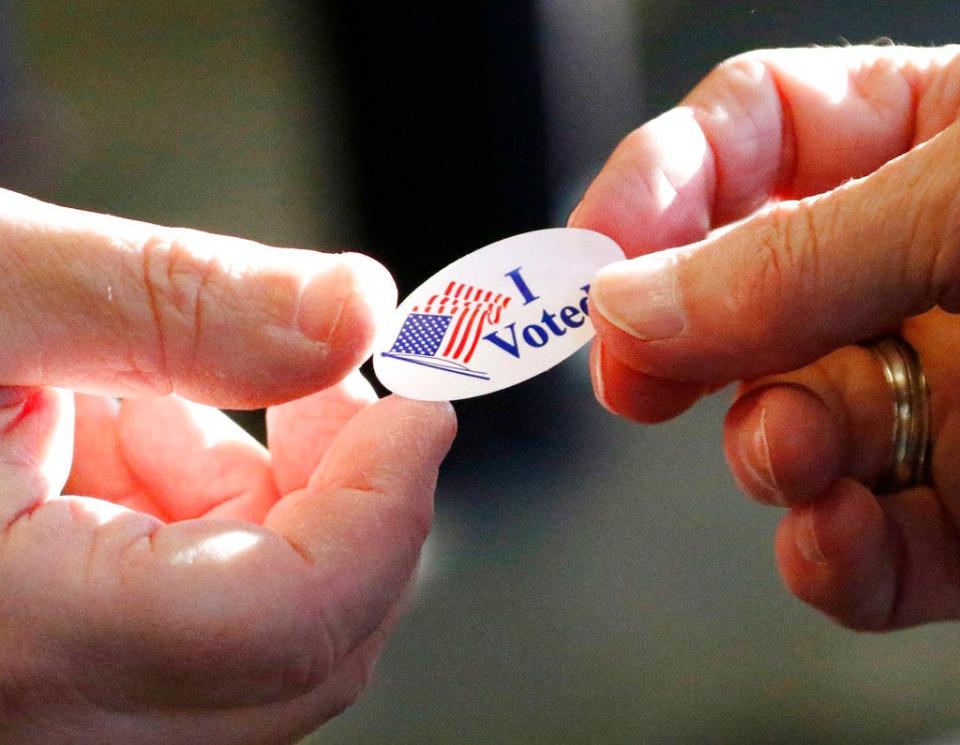
"I'd tell people if you have your card, or whatever documents they give you from the state, go vote," Goins said.
"We'll deal with the consequences. We will have help for that. Don't allow anyone to intimidate you or keep you from doing your civic duty."
J.D. Gallop is a criminal justice/breaking news reporter at FLORIDA TODAY. Contact Gallop at 321-917-4641 or jgallop@floridatoday.com. Twitter: @JDGallop.
Support local journalism. Subscribe today.
This article originally appeared on Florida Today: Advocates: Florida officials must fix voter system for former felons

